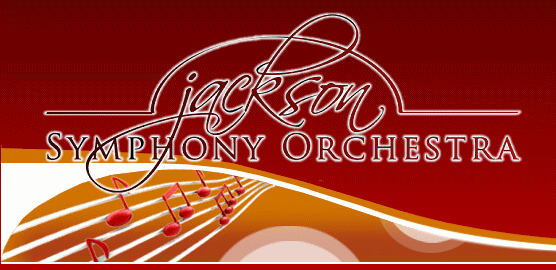Program Notes
October 2, 2010
By Composer in Residence
Bruce Brown
Tonight’s concert of music by “Strange Bedfellows” provides a fascinating study in contrasts. Five of the six composers were born in the four year period from 1809 to 1813, and Berlioz was only slightly older. All of them drew upon musical traditions in their work, and all of them contributed important innovations, but their lives and work could hardly have been more different.
Berlioz wrote daring, Romantic program music, while Mendelssohn produced equally ingenious works full of Classical balance and restraint. Schumann overcame bouts of an emotional disorder to become an important composer and influential critic, while Chopin, suffering from debilitating tuberculosis, became a supreme master of a single genre, solo piano music. Verdi rose to the pinnacle of Italian opera, while Wagner transformed opera into a new kind of total-art-work that shocked and thrilled the world.
Roman Carnival Overture
The première performance of the opera Benvenuto Cellini by Hector Berlioz (1803-1869) was an unqualified disaster. Berlioz argued bitterly with the conductor, Francois Antoine Habanek, and later wondered if Habanek deliberately sabotaged the performance. The tenor soloist withdrew after three performances, and the opera closed.
Five years later Berlioz gleaned some of his favorite music from the opera and fashioned his Roman Carnival Overture, which was named for the libretto’s exotic setting. The overture’s first performance, on February 3, 1844, seemed to be doomed, just like the opera. The brass players had to miss the only rehearsal for mandatory national guard duty, but Berlioz told the musicians to watch closely and count carefully. Their sight reading must have been excellent; the audience loved the music and demanded an immediate encore!
Berlioz must have taken deep satisfaction when he saw Habanek in the audience after the performance and reportedly said “Now that is how it ought to go!”
Concerto for Violin and Orchestra in E Minor, Opus 64
On July 30, 1838, Felix Mendelssohn (1809-1847) wrote to his good friend Ferdinand David: "I should like to write a violin concerto for you next winter. One in E minor runs through my head, the beginning of which gives me no peace." David worked closely with Mendelssohn on the concerto, which wasn’t completed until six years later. David first performed the work in Leipzig on March 13, 1845, and the concerto has become one of Mendelssohn’s best loved works and an essential piece for all aspiring violinists to master.
Questo o quella from Rigoletto
Verdi’s Rigoletto, first performed in Venice on March 11, 1851, is a tragic tale of pride and unintended consequences. The story is set in 16th century Mantua, where the Duke is an incorrigible philanderer. His Jester, Rigoletto, mocks the husbands of the ladies the duke has seduced, but he tries to conceal his own daughter, Gilda, from the duke’s evil designs. Rigoletto plots to murder the duke in the end, but in one of the most famous scenes in all of opera, he discovers that his beloved daughter, not the duke, has died as a result of his plot.
Questo o quella is a glorious example of Verdi’s skill at vivid character depiction. As the duke sings, he leaves no doubt he is a rascal: “I despise a jealous husband, and I laugh at lover’s sighs,” he says, “If a beauty strikes my fancy, I defy a hundred eyes.”
Prelude and Liebestod from Tristan und Isolde
In 1854, Richard Wagner (1813-1883) to write a simple work that could be performed easily to generate some much needed income. Tristan und Isolde
proved to be so difficult it wouldn’t be staged until more than a decade later, on June 10, 1865. The prelude was first performed in 1859, before the rest of the opera was even completed, and Wagner first connected the prelude and the Liebestod for concert performance in 1863.
In the story, the loyal knight Tristan is on a ship bringing Isolde to marry King Marke. They fall desperately in love, but their intense passion must remain hidden because of their duty to the king. The lovers believe they can only find peace in death. Wagner called the opera’s climactic final scene a “transfiguration” but it has come to be known as the Liebestod, or “Love-Death” music.
Giuseppe Verdi once said he “stood in wonder and terror” before Wagner’s Tristan. Clara Schumann called it “the most repugnant thing I have ever seen or heard in all my life.” Richard Strauss once wrote “I have conducted my first Tristan. It was the most wonderful day of my life.” The music has stirred passionate responses ever since.
Scherzo #3 in C# Minor, Opus 39
Frédéric Chopin (1810-1849) wrote four brilliant scherzos for solo piano between 1831 and 1842. He penned the third in 1839. A scherzo is usually a light, playful piece – the word means "joke" in Italian – but Chopin’s scherzos, especially the first three, are so dramatic that Schumann once said of them: "How is 'gravity' to clothe itself if 'jest' goes about in dark veils?”
Piano Concerto in A Minor, Opus 54
Robert Schumann (1810-1856) wrote almost exclusively for solo piano until he married Clara Wieck on September 12, 1840. He celebrated his joy by writing 168 songs in a single year!
The next year, 1841, Schumann started work on a work for piano and orchestra.
"I realize I cannot write a concerto for a virtuoso,” he wrote to Clara, “so I must think up something else…something between a symphony, a concerto and a large sonata…a self-contained movement."
Schumann was pleased with the resulting work and called it Phantasie, but no publisher was interested in a single-movement concerto, so Schumann reluctantly set it aside. In 1845, after a bout with his recurrent emotional problems, he added two movements that fit seamlessly with the one he had finished four years earlier.











